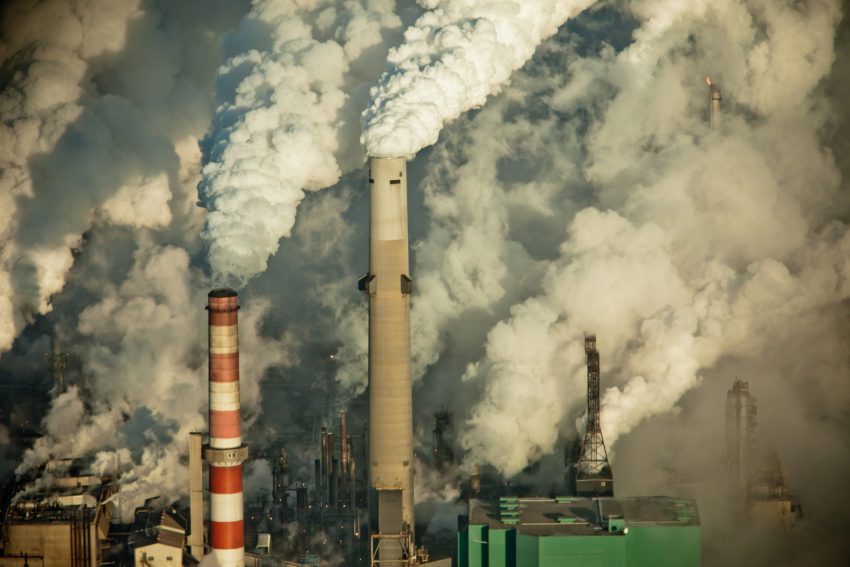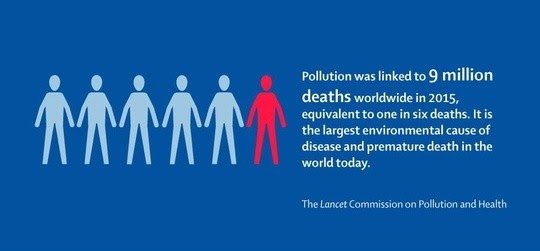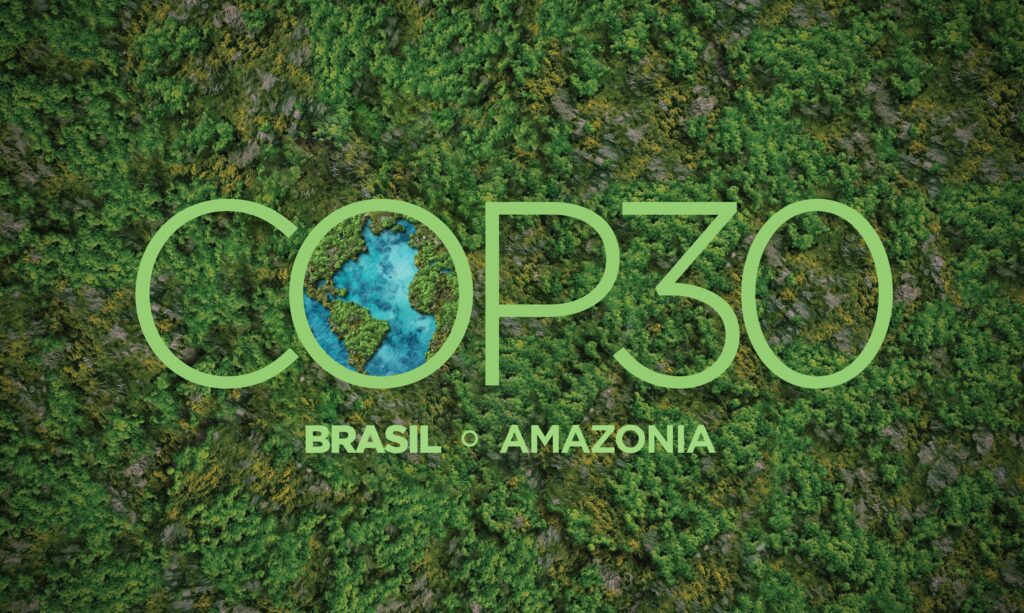Industrial pollution is killing people and making people sick—here in Canada and around the world.
These are the tragic conclusions of a series of alarming investigations and academic studies released in the last month about the devastating impacts on human health of pollution from the fossil fuel and petrochemical industries.

The reports are a timely reminder that climate action is more than cutting carbon pollution and protecting the environment—it’s also about improving our health and quality of life. Our work to reduce fossil fuel use, for example, doesn’t just tackle climate change. It provides co-benefits such as cleaner air and water, new clean energy jobs, and more liveable communities.
At the beginning of October, a national investigation by major media outlets and journalism schools reported that hydrogen sulphide (H2S), a deadly gas released from shale oil wells, was making people sick in southeastern Saskatchewan. The invisible sour gas even led to the death of a worker. The dangers of H2S were widespread throughout the oil-producing region, but government and industry kept this information hidden from the public. The federal government does not even currently consider H2S toxic to human health under Canadian law.
Two weeks later, a related investigation exposed deadly levels and releases of toxic benzene and other dangerous gases in Sarnia’s Chemical Valley, an expansive complex of oil refineries and petrochemical facilities in southwestern Ontario. The poor air quality is directly related to health problems, including cancer and respiratory illnesses, in nearby communities, especially the Aamjiwnaang First Nation. The investigation revealed alarming loopholes that allowed industry to release toxic gases into the air without informing the public and a failure of the Ontario and federal government to protect public health.
Ontario’s Environmental Commissioner called the level of pollution faced by nearby communities, particularly the Aamjiwnaang First Nation, “outrageous”, saying “the conditions faced by these Indigenous communities would not be tolerated elsewhere in Ontario.” The former executive director of Sarnia’s Occupational Health Clinic called it “environmental racism”.
The dangerous air quality around Chemical Valley is another example of the prioritization of the fossil fuel and petrochemical industries over clean air and public health. Lost in the story about Chemical Valley is that the refining and petrochemical complex is supplied largely by tar sands oil.
Perhaps the most alarming story of the impacts of pollution on human health came last week from the Lancet Commission on pollution and health. The comprehensive study showed that pollution kills at least nine million people worldwide—more deaths than war, smoking or natural disasters—every year and “threatens the continuing survival of human societies.”

While the health impacts of pollution are most acute in the developing world, the study found that over five per cent of deaths in Canada can be attributed to pollution. Indigenous peoples in Canada were most affected, especially in northern Alberta and Ontario First Nations communities close to oil, gas and petrochemical industry operations.
The Lancet study highlighted that pollution is intimately linked to global climate change. One of its key messages to improve human health was by controlling and preventing pollution, particularly the carbon pollution that causes global warming.
Cutting pollution would improve air and water quality, reduce the incidence and prevalence of disease, and reduce premature deaths. It would also enhance gender equality, alleviate poverty, improve education, make cities more liveable, improve the economy, and enhance political stability. Finally, cutting pollution would slow the pace of climate change and accelerate the transition to a clean economy.
Industrial pollution, particularly from the fossil fuel and petrochemical industries, is making entire communities sick and killing people, in Canada and around the world. Cutting pollution isn’t just about protecting the environment—it’s about keeping individuals and communities healthier. That’s why Environmental Defence puts clean water, a safe climate, and healthy communities at the heart of everything we do. And why we advocate for a transition away from the production, refining, and consumption of fossil fuels and towards clean, renewable energy.
Take action: tell the federal government it’s time for Canada to become a global climate leader.








